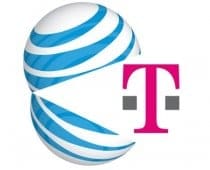
Consumers can claim another victory in the AT&T/T-Mobile merger battle. Regulators listened to our warnings about the wireless giant’s false promises to consumers and are now blocking the deal.
On the heels of AT&T’s decision to withdraw its merger application, the FCC delivered what may just be the final nail in the coffin of the AT&T/T-Mobile deal this week when it released a report finding AT&T failed to show that the merger would serve the public interest.
The Department of Justice similarly came out against the merger when it filed a civil antitrust suit trying to block the deal three months ago.
AT&T withdrew its merger application to the FCC last week, after facing heat from groups like Consumer Watchdog, who warned regulators that AT&T would screw consumers if the merger was approved. AT&T says it plans to re-file the application after it spends some time focusing on the DOJ lawsuit, but it’s clear to everyone that this merger won’t make it past the DOJ and the FCC.
Consumer Watchdog wrote a letter to the FCC and DOJ explaining why AT&T’s promises about the proposed merger shouldn’t be trusted.
Read Consumer Watchdog’s letter opposing the AT&T/T-Mobile merger here.
Apparently the FCC listened to Consumer Watchdog. Contrary to AT&T’s repeated public assertions, the FCC concluded in its report that the merger would lead to increased prices for consumers, decreased innovation, less jobs, and significant harm to competition.
The report called AT&T out for making hollow claims about benefits to consumers and competition that are “inadequately supported by the data supplied,” “unreliable,” and that “raise substantial and material questions of fact.”
It is no surprise that AT&T’s promises of lower prices, better coverage, job growth and increased competition have no sound factual basis and are not supported by adequate data. Before AT&T’s merger with Cingular in 2004, AT&T promised consumers lower prices and better service only to betray those promises after that merger was approved. Consumers got stuck with unexpected bills and phones without service.
AT&T has been using the same smoke and mirror tactics throughout its T-Mobile merger campaign that it used to gain approval of the Cingular merger seven years ago. AT&T did not have the data to back up its claims in 2004, and it does not have supporting data now.
This time around, however, the FCC isn’t falling for it.
The FCC points out that data submitted by AT&T itself refutes its central selling point to the public that this merger is necessary if the country wants to reach its goal of delivering mobile services to 98% of Americans, which, according to AT&T, can only be achieved by AT&T acquiring T-Mobile’s infrastructure to expand its 4G LTE network.
Unless AT&T can provide data establishing a public benefit, the merger is a no-go.
How is AT&T reacting to getting called out by the FCC for its false promises? By lashing out with embarrassingly transparent projections that the FCC’s report is biased and “cherry-picks facts to support its views, and ignores facts that don’t.” AT&T’s hypocritical response does not help its case. Instead of releasing a statement bashing the FCC and repeating the same old stuff, why doesn’t AT&T provide the FCC with enough reliable facts to prove that the merger is in the public interest?
Because it can’t. Those facts don't exist.
AT&T knows that the merger is a sinking ship and is throwing a tantrum because the government has refused to rubber-stamp the deal. Consumer Watchdog applauds the FCC and the DOJ for standing up to a corporate bully and taking action to stop this merger.
Read Consumer Watchdog’s letter opposing the AT&T/T-Mobile merger here.







